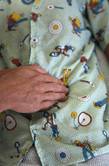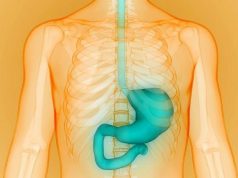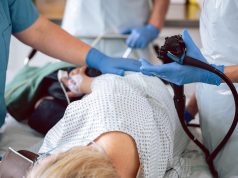Improvements with hypnotherapy, cognitive behavioral therapy, probiotics in AP-FGIDs
MONDAY, Feb. 9, 2015 (HealthDay News) — Certain nonpharmacologic treatments are effective in pediatric abdominal pain-related functional gastrointestinal disorders (AP-FGIDs), according to a review published online Feb. 9 in Pediatrics.
Juliette M.T.M. Rutten, M.D., from Emma’s Children’s Hospital in Amsterdam, and colleagues conducted a systematic review of the literature relating to nonpharmacologic interventions for pediatric AP-FGIDs. Data were included from 24 randomized controlled trials that included 1,390 children.
The researchers observed significant improvement of abdominal pain after hypnotherapy versus standard care/wait list approaches and after cognitive behavioral therapy versus control/wait list approaches. At the six-month follow-up only, written self-disclosure improved pain frequency. Significantly more treatment responders were seen with Lactobacillus rhamnosus GG (LGG) and VSL#3 versus placebo (LGG relative risk, 1.31; VSL#3 P < 0.05). Irritable bowel syndrome symptom frequency was significantly improved with guar gum but there was no effect seen for other fiber supplements or a lactose-free diet. Compared with a wait-list approach, yoga was not associated with a significant decrease in functional disability. There were no reports of serious adverse events. Evidence quality was found to be very low to moderate.
“Although high-quality studies are lacking, some evidence shows efficacy of hypnotherapy, cognitive behavioral therapy, and probiotics (LGG and VSL#3) in pediatric AP-FGIDs,” the authors write.
Copyright © 2015 HealthDay. All rights reserved.








